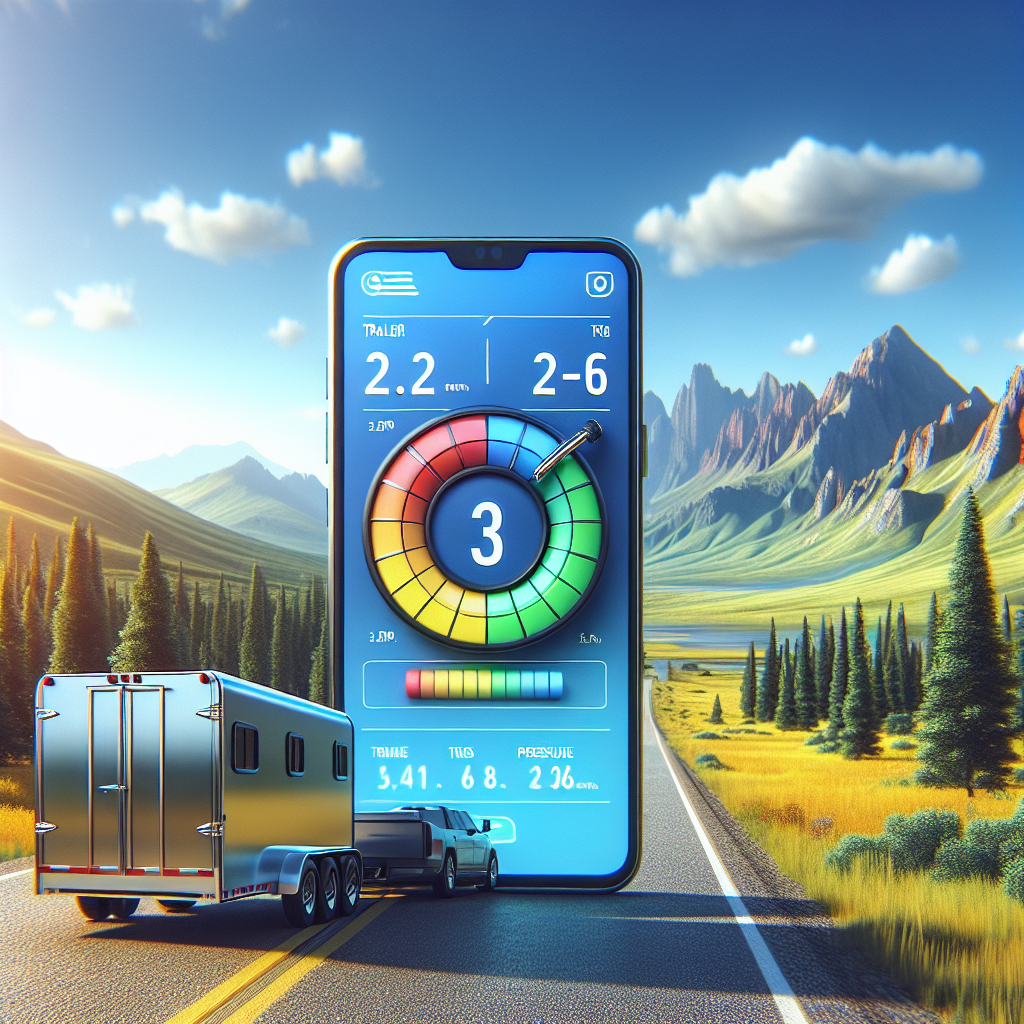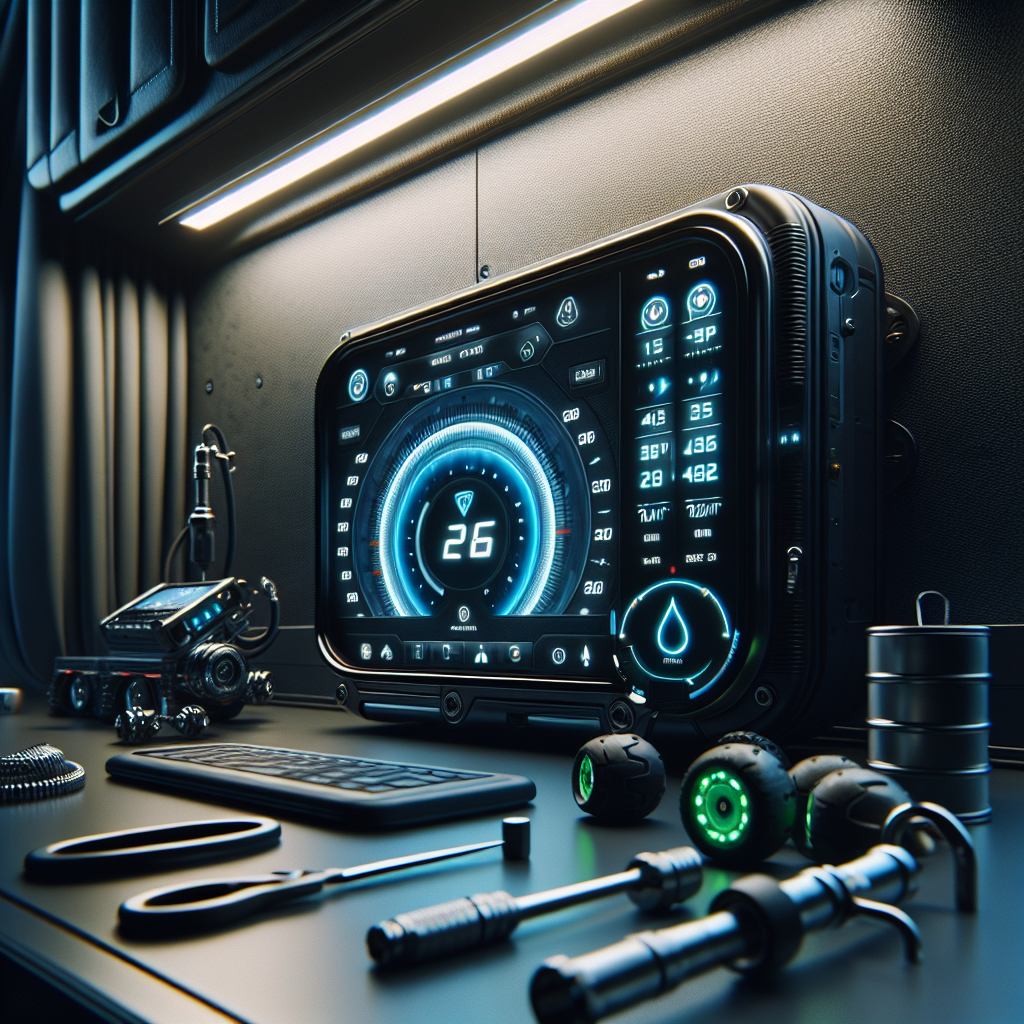In an era where safety and efficiency are paramount, the remote trailer tire pressure monitoring system has emerged as a game changer for fleet operators and individual trailer owners alike. These innovative systems are designed to provide real-time monitoring of tire pressure, ensuring that drivers can detect any issues before they escalate into serious problems.
Maintaining optimal tire pressure is crucial for several reasons. Under-inflated tires can lead to increased fuel consumption, decreased tire lifespan, and most importantly, a higher risk of blowouts. With a remote monitoring system, users receive immediate alerts regarding tire pressure fluctuations, allowing them to take necessary action promptly. This proactive approach not only enhances safety but also optimizes the overall performance of the trailer.
The technology behind these systems has advanced significantly, allowing for easy installation and user-friendly interfaces. Many systems can be integrated with smartphones or vehicle dashboards, providing seamless access to tire data at any time. This connectivity empowers drivers to make informed decisions based on accurate and timely information.
Tow with peace of mind, knowing that trailerwatchdog is standing guard. With our state-of-the-art solutions, you can transform your trailer into a smart trailer that keeps you informed and safe on the road.
Importance of Tire Pressure Monitoring for Trailers
The significance of tire pressure monitoring for trailers cannot be overstated. Proper tire pressure is essential for ensuring safe and efficient travels, especially considering the unique demands placed on trailer tires during transportation. Here are some key reasons why monitoring tire pressure is crucial:
- Enhanced Safety: Low tire pressure is one of the leading causes of tire blowouts, which can lead to dangerous accidents. By keeping a close watch on tire pressure, drivers can mitigate this risk and enhance overall road safety.
- Improved Fuel Efficiency: Under-inflated tires create more rolling resistance, which can lead to increased fuel consumption. Maintaining the correct tire pressure can significantly improve fuel efficiency, saving costs in the long run.
- Extended Tire Lifespan: Tires with proper pressure wear evenly and last longer. This reduces the frequency of tire replacements, ultimately saving money and reducing waste.
- Better Handling and Performance: Properly inflated tires ensure better traction and handling, allowing for smoother rides and improved vehicle performance, particularly when navigating challenging terrains.
Incorporating a remote trailer tire pressure monitoring system provides a convenient solution to these challenges, allowing for continuous monitoring and immediate alerts on tire conditions.
Benefits of Using Remote Monitoring Systems

The adoption of remote monitoring systems for trailers has revolutionized the way fleet managers and drivers maintain their vehicles. These advanced systems provide a multitude of benefits that enhance both safety and operational efficiency. Here are some of the most significant advantages:
- Real-Time Data Access: Remote monitoring systems deliver immediate access to vital information, including tire pressure, axle temperature, and other critical metrics. This allows for timely interventions before minor issues escalate into serious problems.
- Preventive Maintenance: By continuously tracking the condition of tires and axles, these systems enable proactive maintenance strategies. This can lead to reduced downtime and increased reliability, ensuring that trailers are always ready for the road.
- Cost Savings: Investing in a remote monitoring system can lead to substantial savings. By avoiding tire blowouts and preventing wear and tear, operators can reduce maintenance costs and extend the life of their equipment.
- Enhanced Fleet Management: For businesses operating multiple trailers, remote monitoring systems provide centralized control and oversight. This facilitates better decision-making and resource allocation, improving overall fleet efficiency.
- Improved Safety Compliance: Many industries face strict regulatory standards regarding vehicle safety. A remote monitoring system can help ensure compliance with these regulations, minimizing the risk of penalties and enhancing the organization’s safety reputation.
Overall, the implementation of a remote trailer tire pressure monitoring system not only supports the safety of trailers but also optimizes their performance and longevity.
Key Features to Look for in Monitoring Systems

When selecting a remote trailer tire pressure monitoring system, it's essential to consider several key features that can significantly enhance the effectiveness and reliability of the monitoring process. The right system will not only provide accurate data but also offer functionalities that fit your specific needs. Here are the critical features to look for:
- Real-Time Alerts: A robust monitoring system should provide instant notifications for any abnormalities, such as low tire pressure or high axle temperature, allowing for immediate action to prevent potential failures.
- User-Friendly Interface: The system should have an intuitive interface that allows users to easily navigate through data and settings. A straightforward dashboard ensures that critical information is readily accessible.
- Wireless Connectivity: Look for systems that utilize wireless technology for data transmission. This feature simplifies installation and reduces the need for extensive wiring, making it easier to retrofit existing trailers.
- Data Logging: A good monitoring system should have data logging capabilities, allowing users to review historical data for analysis. This can help in identifying patterns over time and making informed decisions regarding maintenance schedules.
- Durability and Weather Resistance: Considering that trailers operate in various environments, the monitoring devices should be rugged and weather-resistant to ensure longevity and reliable performance under diverse conditions.
- Compatibility: Ensure that the monitoring system is compatible with your current trailer setup. This includes checking for integration with existing fleet management systems or software.
By focusing on these key features, you can choose a remote trailer tire pressure monitoring system that not only meets your requirements but also enhances the safety and efficiency of your operations.
How Remote Systems Prevent Catastrophic Failures

The implementation of a remote trailer tire pressure monitoring system plays a crucial role in preventing catastrophic failures that can lead to accidents, costly repairs, and downtime. Understanding how these systems function can highlight their importance in enhancing safety on the road.
One of the primary ways these monitoring systems prevent failures is through real-time monitoring. By continuously tracking tire pressure and axle temperatures, any deviations from safe operating conditions can be detected instantly. This enables drivers to take action before a minor issue escalates into a significant problem.
Additionally, the ability to receive instant alerts via mobile devices or dashboards means that operators can respond promptly. For instance, if a tire begins to lose pressure, the system will send a notification, allowing the driver to pull over safely and address the issue before it results in a blowout or loss of control.
Moreover, these systems often feature historical data analysis. By examining trends in tire performance and temperature, operators can identify potential weaknesses and take proactive measures to maintain equipment. Regular analysis of this data can lead to better maintenance schedules and informed decisions regarding replacements or upgrades.
Finally, the integration of advanced algorithms in some remote monitoring systems can enhance predictive maintenance capabilities. By utilizing machine learning and data analytics, these systems can forecast potential failures based on historical patterns, providing an additional layer of safety.
In summary, a remote trailer tire pressure monitoring system is an invaluable tool that not only enhances operational efficiency but also plays a pivotal role in ensuring the safety of trailers on the road.
Conclusion: Ensuring Safety with Advanced Monitoring Solutions

In today’s fast-paced world of transportation, ensuring the safety of your trailer and its cargo is paramount. The integration of a remote trailer tire pressure monitoring system serves as a proactive approach to not only safeguard your trailer but also enhance its overall performance. By providing real-time data on tire pressure and axle temperatures, these advanced monitoring solutions empower operators with the information they need to prevent catastrophic failures.
Moreover, the ability to receive immediate alerts allows for timely interventions, significantly reducing the risk of accidents caused by tire blowouts or overheating. With features like historical data analysis and advanced predictive algorithms, these systems enable operators to make informed maintenance decisions, ensuring their trailers remain in optimal condition.
As the transportation industry continues to evolve, investing in technology that promotes safety and efficiency is no longer optional but essential. The benefits of a remote monitoring system extend beyond mere convenience; they can lead to substantial cost savings, reduced liability, and enhanced peace of mind.
Ultimately, adopting a remote trailer tire pressure monitoring system is a smart choice for those who prioritize safety on the road. Tow with peace of mind, knowing that trailerwatchdog is standing guard.








